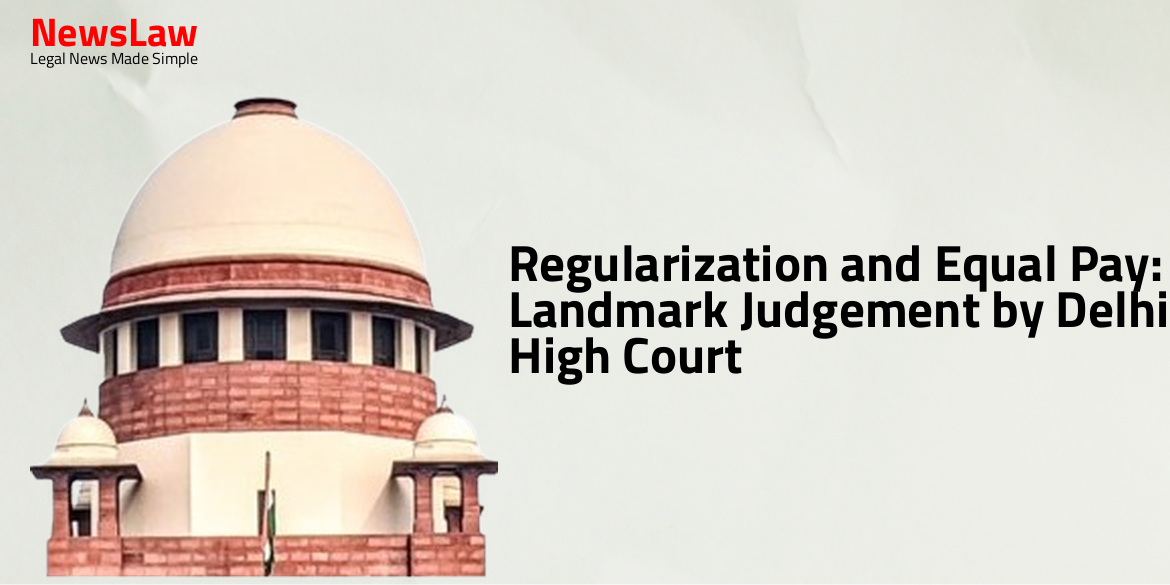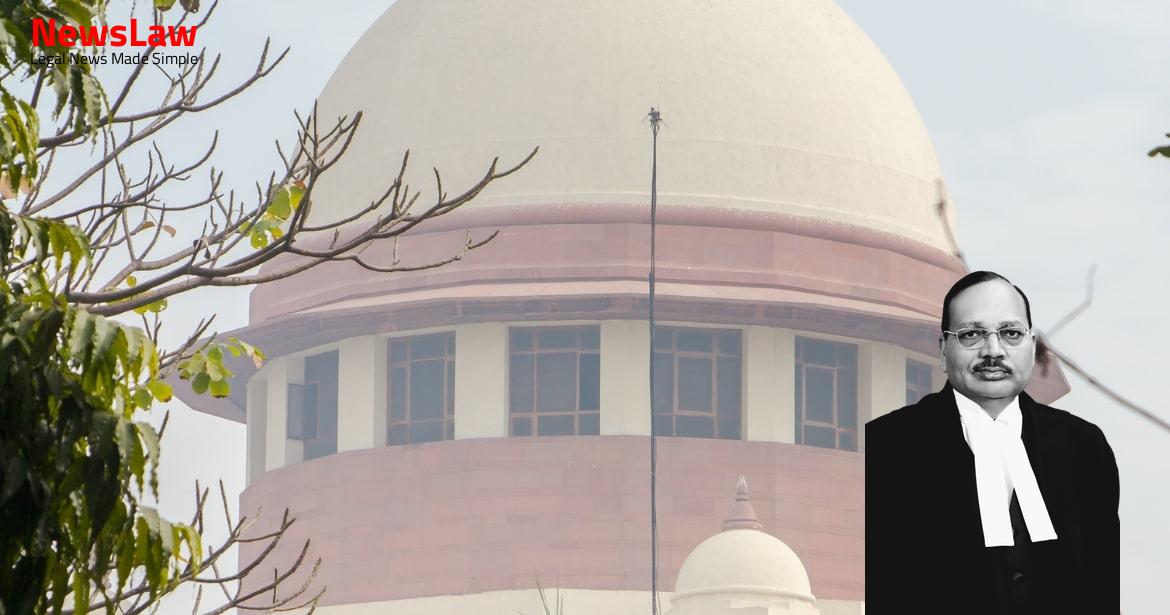Explore a comprehensive legal analysis of the interpretation of Section 80P by the court, focusing on cooperative societies and their entitlement to deductions under the Income Tax Act. Dive into the details of eligibility criteria, importance of primary objectives, and the burden of proof on the assessee. Discover the significance of continuous adherence to primary agricultural credit functions for claiming deductions under Section 80P. Stay informed about the key legal aspects surrounding cooperative societies and taxation.
Facts
- The appeals have been filed by co-operative societies registered as ‘primary agricultural credit societies’ and a ‘multi-State co-operative society’.
- The appeals raise questions on deductions under section 80P(2)(a) (i) of the Income-Tax Act, 1961.
- The issue revolves around the entitlement of deductions post the introduction of section 80P(4) by the Finance Act, 2006.
- Assessees were claiming deductions under section 80P(2)(a) (i) of the IT Act until Assessment Year 2007-08, but the scenario changed with the introduction of section 80P(4).
- All assessees classified as primary agricultural credit societies by the Registrar of Co-operative Societies under the Kerala Co-operative Societies Act, 1969.
- Leave granted in the Special Leave Petition arising out of Diary No.31268 of 2019.
- I.A. Nos.192273 and 192277 of 2019 are allowed.
- The Kerala High Court referred to various provisions of the IT Act, Banking Regulation Act, and the Kerala Act to determine the eligibility of primary agricultural credit societies for deductions under section 80P(2)(a)(i) of the IT Act.
- Assessing officers denied deduction claims for certain assessees due to negligible agricultural credits provided to members for non-agricultural purposes.
- Contradictory decisions from lower courts led to a reference order to a Full Bench of the Kerala High Court.
- The High Court ruled that once classified as a primary agricultural credit society under the Kerala Act, authorities under the IT Act cannot investigate whether agricultural credits were actually provided by the society.
- A specific case, Chirakkal Service Co-operative Bank Ltd. v. CIT, established that registration as a primary agricultural credit society entitles entities to deductions under section 80P(2)(a)(i) read with section 80P(4) of the IT Act.
- The Department argued that this judgment was per incuriam, not considering a prior case that highlighted the need to verify if a cooperative bank indeed functions as a primary agricultural credit society for the relevant assessment year to allow or disallow deductions under section 80P of the IT Act.
Also Read: Limitation Period in Arbitration Disputes: Court’s Legal Analysis
Issue
- The issue at hand pertains to the claim made by an assessee society for deduction under section 80P of the IT Act.
- The Full Bench considered the law laid down by the Apex Court in Citizen Co-operative Society (397 ITR 1) in this context.
- It was concluded that the law as established by the Apex Court in the aforementioned case cannot be contended with while considering the claim for deduction under section 80P.
Also Read: Interpretation of Royalty in Software Import Case
Arguments
- Section 80P of the IT Act is a beneficial provision meant to further the cooperative movement in India.
- The introduction of subsection (4) aimed to remove co-operative banks from availing deductions under Section 80P.
- The Finance Act, 2006 and circulars clarified that co-operative societies not classified as banks are eligible for deductions.
- The Full Bench misinterpreted the Supreme Court’s judgment in Citizen Cooperative Society Ltd. regarding the application of Section 80P(4).
- Registration under a State Act entitles co-operative societies to deductions under Section 80P, depending on attributability rather than just eligibility.
- Assessing officers can investigate if societies are truly engaged in providing agricultural credit to members according to Section 80P criteria.
- Certification as a primary agricultural credit society by the Registrar holds significant importance in determining eligibility for deductions under Section 80P.
- Providing credit facilities to members, regardless of agriculture-related activities, qualifies a society for deductions under Section 80P.
- Assessing officers need to verify the engagement of societies in providing loans for agricultural and allied purposes to members for eligibility under Section 80P.
- Shri Balbir Singh, representing the Revenue, countered arguments made by Senior Advocates for the assessees.
- The burden of proof to establish eligibility for deduction under Section 80P lies with the assessee, requiring factual evidence each assessment year.
- Referring to RBI press releases from 2017, Singh highlighted warnings against unlicensed societies engaging in banking activities.
- Citing Sections 2(19) and 80P of the Income Tax Act, Singh emphasized the necessity for co-operative societies to actively engage in their primary agricultural credit functions to claim deductions.
- Singh supported the Full Bench’s stance that mere registration is insufficient, and continuous adherence to primary objectives is crucial for eligibility under Section 80P(4).
Also Read: Interpretation of Section 43B: Debentures vs. Interest Payment
Analysis
- The essence of a judicial decision is its ratio, not every observation within it.
- The function of a proviso is to qualify the main enactment by providing an exception.
- Provisos should be read in conjunction with the main provision for a harmonious construction.
- The expression ‘engaged in providing credit facilities to its members’ in Section 80P encompasses more than just agricultural credit.
- A cooperative society must establish eligibility for deduction under Section 80P by providing relevant facts.
- Judges’ decisions are binding based on the principles they establish, not every statement made in the judgment.
- The proviso carves out exceptions and has to be read in relation to the main enactment.
- The distinction between eligibility for deduction and attributability of profits to specific activities is crucial.
- A proviso must be limited to the subject matter of the main provision.
- If an entity falls within one head of exemption, it is free from tax even if conditions of other exemptions are not met.
- The judgment analyzed various provisions of Section 80P of the Income Tax Act in relation to cooperative societies.
- The judgment emphasized the importance of interpreting the proviso in conjunction with the main enactment.
- It discussed the necessity of giving meaning to the proviso while not rendering the main enactment redundant.
- The judgment highlighted the significance of the exclusion of cooperative banks from the scope of Section 80P.
- It pointed out the distinction between primary agricultural credit societies and cooperative banks.
- The judgment clarified that the exemption under Section 80P is intended to encourage and promote the growth of the cooperative sector.
- It emphasized the need for a liberal and reasonable interpretation of Section 80P in favor of the assessee.
- The analysis focused on the mutuality aspect and the engagement in marketing agricultural produce by cooperative societies.
- The judgment stressed the importance of the specific activities of cooperative societies to determine their eligibility for deduction under Section 80P.
- It discussed the relevance of classification under the Central or State Co-operative Societies Act for availing deductions.
- Section 80P(1)(c) focuses on the cooperative movement in general, allowing cooperatives engaged in residuary activities to claim deductions.
- Sub-clause (c) has a wide reach, including cooperatives engaged in any independent activity, subject to a cap of INR 50,000.
- Cooperatives are not bound to only fulfill initial objects to avail benefits under Section 80P.
- Cooperative societies conducting additional legitimate activities can claim a maximum deduction of Rs.50,000 under sub-clause (c).
- Section 80P(4) allows deduction for interest or dividend income from investments with other cooperatives, promoting cooperative movement.
- The Finance Minister’s speech mentioned the need for introducing Section 80P(4) to ensure that cooperative banks pay taxes on profits.
- The Kerala Act lays out provisions for registration of cooperative societies and defines different types of societies based on their objects and activities.
Decision
- The impugned Full Bench judgment has been set aside
- All appeals and pending applications have been disposed of accordingly
- A society is allowed to make a loan to a depositor against the security of his deposit
- Loans can be granted to both members and non-members based on specified regulations by the Registrar
- Unlike the case in Citizen Cooperative Society Ltd. (supra), giving loans to non-members by a primary agricultural credit society is not illegal
Case Title: THE MAVILAYI SERVICE COOPERATIVE BANK LTD. Vs. COMMISSIONER OF INCOME TAX CALICUT (2021 INSC 17)
Case Number: C.A. No.-007343-007350 / 2019



